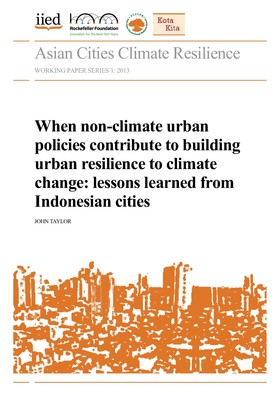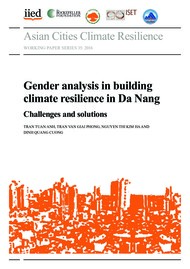When non-climate urban policies contribute to building urban resilience to climate change: lessons learned from Indonesian cities

As in many Asian countries, cities in Indonesia face multiple threats from climate hazards, among them sea-level rise, flooding and coastal abrasion. In struggling to respond to these challenges, as well as the effects of rapid urbanisation, some Indonesian city governments have developed interesting policy innovations that may offer lessons about vulnerability reduction. These city governments have taken advantage of recent decentralisation legislation, giving them more flexibility to craft social policies that respond to the specific context of their citizens and needs. This research presents several cases that demonstrate examples of innovative policies that have increased water provision to urban poor residents, reduced the vulnerability of riverbank settlements, and introduced technology in gathering and sharing vital data to increase public access to information. Examined through a resilience framework, the cases reveal how in an era of decentralisation and increasing climate risk, some city governments have adopted an open-minded and responsive approach and introduced flexible and inclusive policies that have led to successful reductions in social vulnerability. The research contributes to efforts to document lessons about policy design and implementation and provides conclusions about why these policies have been successful in bolstering resilience and reducing vulnerability.
Cite this publication
Available at https://www.iied.org/10630iied






